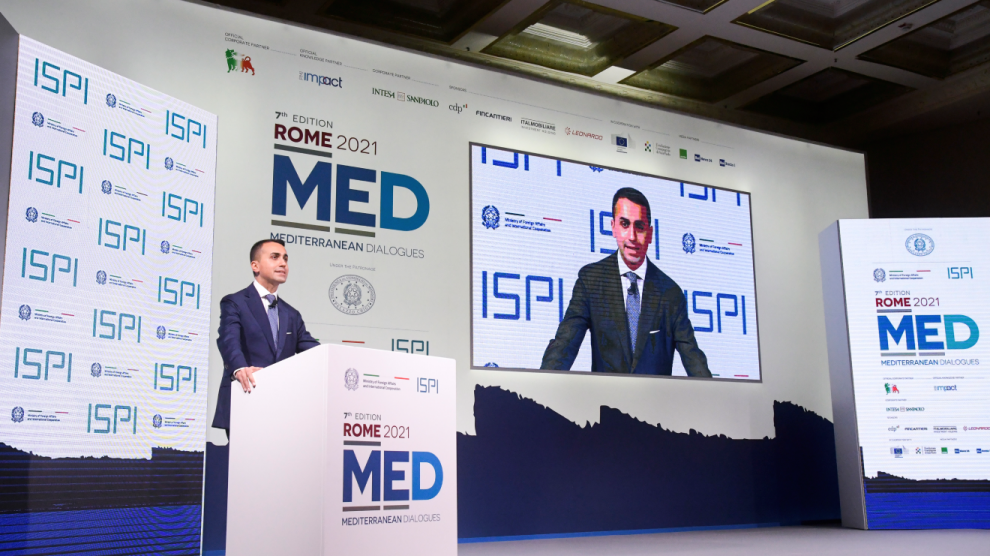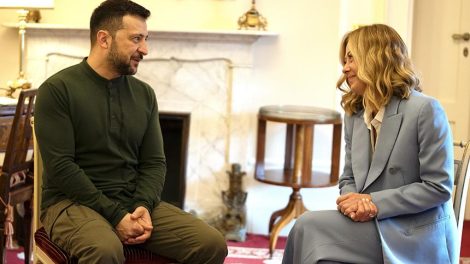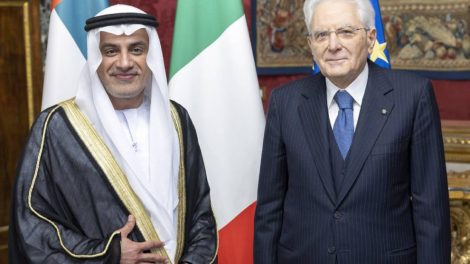The Mediterranean must become a space for dialogue again, wrote the Italian Foreign Minister Luigi Di Maio on La Repubblica. His op-ed coincided with the start of the 7th edition of Rome MED – Mediterranean Dialogues Conference, co-hosted by the Ministry of Foreign Affairs and International Cooperation and the Italian Institute for International Political Studies (ISPI).
As the world is still grappling with Covid-19 and its variants, the Med is going through a complex phase of political and economic transition. This juncture is crucial to define the future power balance of the sea that most of the EU overlooks – and for which it should prepare “a positive agenda,” starting from multilateralism as a strategy for conflict resolution.
This is the starting point for this year’s Rome MED, a series of events to be held in hybrid mode – with both physical and virtual participation and live streaming – featuring high-level speakers, to be held on 2-4 December in Rome at the Parco dei Principi Grand Hotel.
Among the strategic topics at the centre of the debate are the main security challenges, innovative policies for the management of migratory flows, the fate of the younger generations after the pandemic, initiatives to accelerate the transition to a green and sustainable economy, responses to the problems posed by the climate emergency and the relaunch of the Middle Eastern peace process. Also, an opportunity to discuss the future of the Euro-Mediterranean partnership, the role of NATO and the EU in the Med.
Mr Di Maio himself recalled how the initiative is “now established as the main international event dedicated to the wider Mediterranean, an area of extraordinary geopolitical importance that goes from the Sahel to the Balkans, from North Africa to the Persian Gulf, and which sees [Italy] at its centre.”
The conference, continued the minister, “is the culmination of a process […] aimed at developing and keeping alive the reflection around the main challenges facing the region” while remaining aware that “the complexity of the current dynamics and the high degree of mutual interconnection call for a continuous effort towards in-depth study and dialogue.”
Mr Di Maio also recalled the historical role of the Mediterranean as an area of dialogue and exchange. “Our ambition is to continue to offer, through the MED Dialogues, a laboratory for redefining our common action in the light of today’s challenges.”
Hence, he continued, “we want to – and must – invest by putting people at the centre, starting with young people, to whom one of the forums organised alongside the MED Dialogues will be dedicated, and by supporting their capacity for innovation and growth.”
In this manner and “in continuity with the approach promoted by the Italian presidency of the G20,” Italy “can give renewed substance to the traditional objective of the MED Dialogues: the construction of a ‘Positive Agenda’ which looks not at the Mediterranean as an epicentre of crisis, but rather recognises its extraordinary potential, first and foremost as a material and ideal platform for connecting Europe, Africa and Asia, united in a single macro-continent.”
This year’s edition is titled Leveraging Transitions, which hints at “the need to leverage the different transitions we are going through on the levels of politics, society, the economy, energy and digital, explained Mr Di Maio.
“Think of the green transition and how it increases the centrality of the Mediterranean for energy security; or the digital transition, a catalyst for modernisation, integration and competitiveness on both sides. Governing transitions in an interdependent world requires a collective effort and a strengthening of cooperation.”





